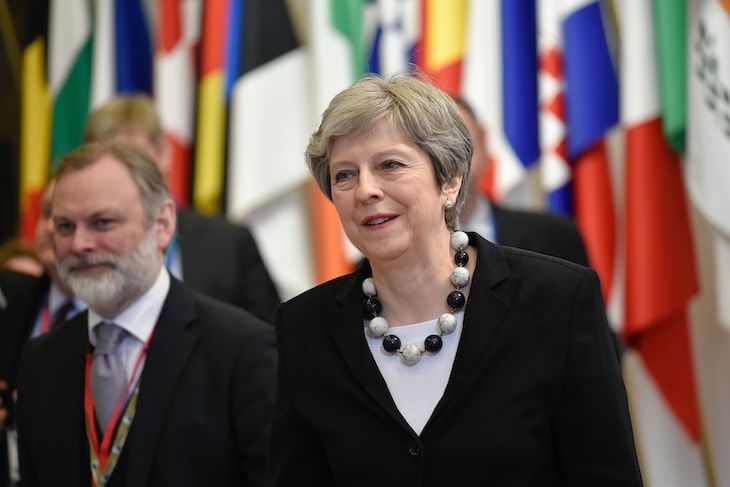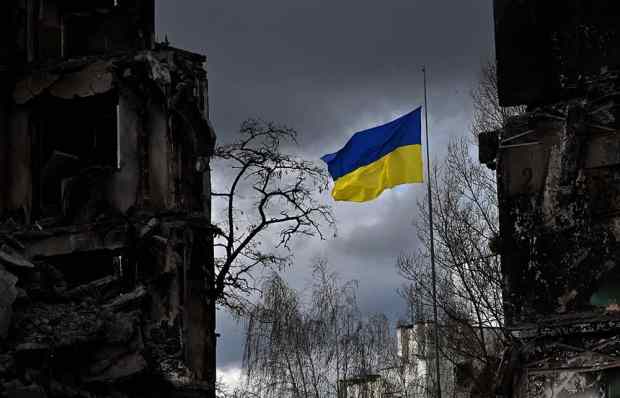After Britain voted to leave the European Union, there was much mistaken talk about how it might also move away from its allies. Boris Titov, one of Putin’s appointees and a half-hearted challenger to him in the presidential election a fortnight ago, claimed that it would break the transatlantic alliance, turning the remainder of the EU into Russophiles, adding: ‘It’s not long until a united Eurasia — about ten years’.
That fantasy was destroyed last week when, in an unprecedented show of solidarity, 23 countries announced that between them they are to expel more than 100 Russian diplomats whom they suspect have been working as spies. It is harder for Vladimir Putin to pretend that Britain’s expulsion of 23 diplomats a few days earlier was a feeble gesture from an impotent country whose accusations against his regime have proved unconvincing to others.
The mass expulsions are in response to the attempted murder of Sergei Skripal and his daughter in Salisbury, and have been arrived at on the strength of evidence which inexorably points to the involvement of the Russian state. In the immediate aftermath of the Salisbury attacks this magazine, we cautioned against a rush to judgment. Why would Putin, we asked, want to neutralise a retired double agent whom he could easily have had killed while he was in detention in Russia before being released under a spy swap with Britain?
Then came the damning revelation that the poison used in Salisbury was a nerve agent developed by and manufactured only by the former Soviet Union. As the Prime Minister observed in her statement to the Commons, that left only two possibilities: either the Russian state was involved or it had lost control of its stocks of the chemical. But if the latter, who else would choose to use it in order to try to kill a Russian citizen living in Britain? It is not a mafia tactic to employ exotic poisons which are obviously going to draw attention to the crime. While it is just about within the bounds of possibility that Iran or China have somehow managed to manufacture Novichok and deployed it in Britain in order to frame Putin, that is pretty far-fetched. British intelligence accepts that Putin might not personally have ordered or known about this attack. Yet the overwhelming likelihood is that it was conducted by agents working on his behalf, who chose the nerve agent as a deliberate calling card of the Russian state.
The expulsions have given us an interesting insight into the state of European relations. It was Emmanuel Macron, president of France, who proposed co-ordinating the news on Monday afternoon. Angela Merkel immediately agreed, even though Germany is vulnerable to Russian energy blackmail. Even Hungary, whose government is suspiciously close to the Kremlin, deported a diplomat. Bulgaria, understood to be awash with Russian money, did not. Nor did Austria, where the Freedom Party is now in control of the home office. Strikingly, no European government needed persuading that the Russian embassies in their capitals are full of spies.
This has been an open secret for some time, but perhaps understandably Britain and much of Europe have preferred to ignore the fact. The chemical weapon attack in Salisbury has focused everyone’s minds. And it helped, this time, that the stakes were lower. On earlier occasions intelligence has been used, and exaggerated, to justify the imminent invasion of a foreign country. No one is talking about military action; this is a diplomatic and possibly economic response.
Putin may calculate that as long as Russia can generate some doubt about the Salisbury attack, then the world will be reluctant to retaliate in any form. There is a pattern of behaviour which follows each of Russia’s outrages, from the annexation of Crimea in 2014 to the shooting down of the Malaysian airliner over Ukraine later that year, and the various incursions of Russian military aircraft into foreign airspace over western Europe and Scandinavia. Denial is followed by outlandish explanations. The obvious assumption is that Putin is testing our defences and our reactions — it is a policy of provoke and observe.
If we want to deter him, it is vital that we do respond, and not just in a haphazard way but in a measured and coordinated fashion. After the annexation of Crimea economic sanctions were quickly applied. The depressing effect on the Russian economy may well have succeeded in deterring Putin from helping himself to further slices of Ukraine.
As the head of the Russian armed forces, Valery Gerasimov, observed in 2013, the concepts of ‘war’ and ‘peace’ have become blurred: we are now in a state of perpetual war by other means. ‘The role of non–military means of achieving political and strategic goals has grown,’ wrote Gerasimov, ‘and in many cases they have exceeded the power of force of weapons in their effectiveness’.
That is, from deep within the Putin regime, an explanation of its tactics. It is not spoiling for war, but conducting a campaign of isolated and deniable acts of aggression as a means of advancing its interests. The way to respond to this is not through a Cold War-style arms race and implied threats of annihilation, but in making sure that we have the best non-military means. The unity and sense of purpose demonstrated in this week’s co-ordinated expulsion of diplomats is the most powerful weapon we have.
Got something to add? Join the discussion and comment below.
Get 10 issues for just $10
Subscribe to The Spectator Australia today for the next 10 magazine issues, plus full online access, for just $10.
You might disagree with half of it, but you’ll enjoy reading all of it. Try your first month for free, then just $2 a week for the remainder of your first year.














Comments
Don't miss out
Join the conversation with other Spectator Australia readers. Subscribe to leave a comment.
SUBSCRIBEAlready a subscriber? Log in